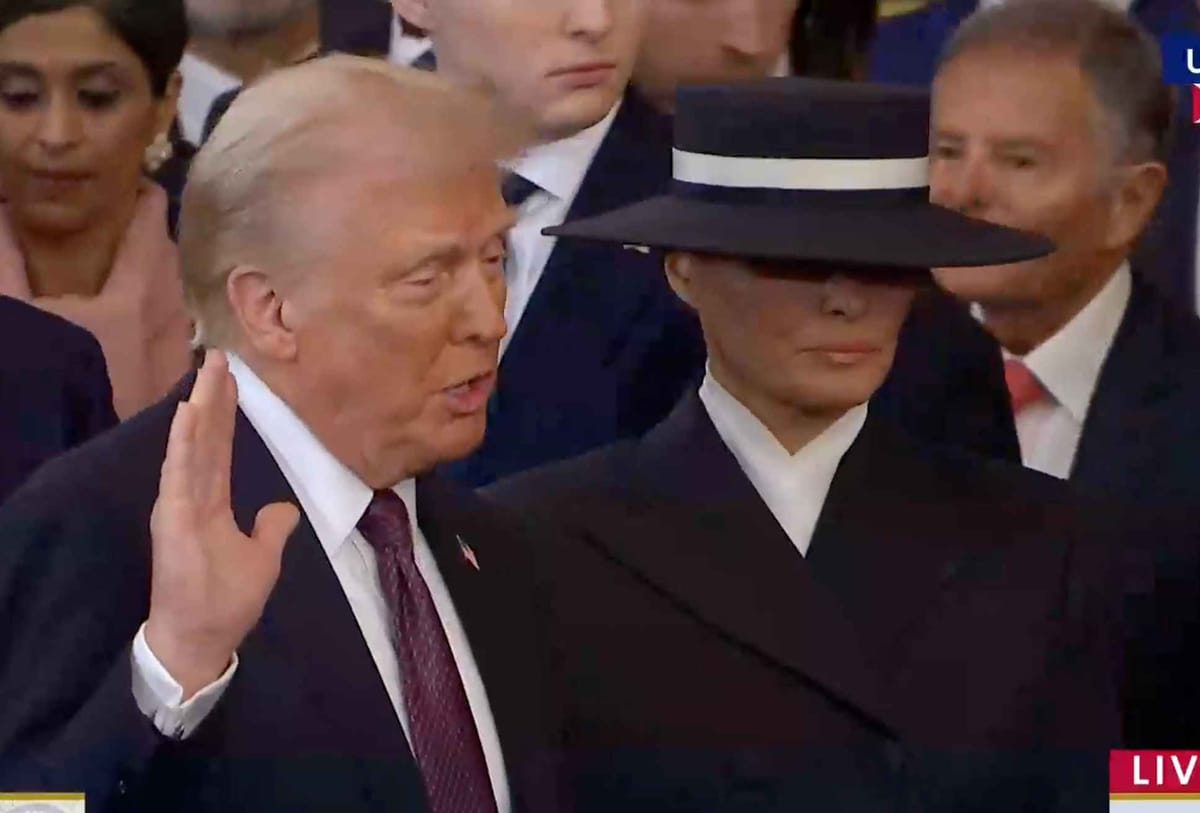- Donald Trump begins second term with sweeping changes targeting immigration and federal policies.
- Inaugural speech announces strict definitions of gender and end to diversity programmes.
- Events moved indoors due to frigid weather as Trump pledges to “rescue America.”
Donald Trump has been sworn in as the 47th President of the United States, officially beginning his second term. The ceremony, initially planned for outdoors, was moved to the Capitol Rotunda due to icy weather conditions. Trump took the oath of office at 6am (NZ time), administered by Chief Justice John Roberts. Vice President JD Vance was sworn in shortly before him.
Addressing a crowd of 20,000 supporters at Capital One Arena after the ceremony, Trump outlined his administration's priorities while signing a series of executive orders on stage. His speech reinforced his commitment to reshaping government policies, including controversial decisions on gender, diversity programmes, and immigration.
Trump announced, "As of today, it will henceforth be the official policy of the United States government that there are only two genders, male and female." The definition of male and female, Trump explained, will be based on whether a person is born with eggs or sperm, rather than chromosomes. Under this order, facilities such as prisons, migrant shelters, and rape crisis centres will be segregated by this definition. Federal documents, including passports, will also reflect these changes.
The new order blocks workplace requirements that transgender individuals be addressed by pronouns matching their gender identity. Trump’s administration claimed these requirements violate First Amendment rights to freedom of speech and religion. His team emphasised that these policies represent "common sense" reforms.
Trump also signed a second executive order targeting federal diversity, equity, and inclusion (DEI) initiatives, cutting their funding and directing agencies to evaluate existing programmes for potential termination. Monthly meetings of relevant agencies will now assess all DEI initiatives to determine whether they align with the administration’s priorities.
Immigration remained a central theme of Trump’s inaugural speech, as he announced a national emergency at the southern border and plans to send armed troops to enforce stricter border controls. He also proposed ending birthright citizenship for children of undocumented migrants and reinstating a policy requiring asylum seekers to remain in Mexico while awaiting court hearings. These measures, which Trump framed as protecting national security, are expected to face significant legal challenges.
Trump’s inauguration represents a political comeback following years of controversy, including two impeachment trials, a felony conviction, and two assassination attempts. The former president used his speech to celebrate his resilience, stating, “The journey to reclaim our republic has not been an easy one, that I can tell you.”
The ceremony took place amidst tight security, four years after a mob of Trump supporters stormed the Capitol in an attempt to overturn his 2020 election loss. Former presidents Barack Obama, George W. Bush, and Bill Clinton attended the ceremony, along with outgoing President Joe Biden, who greeted Trump with a handshake and said, “Welcome home.”
Prominent figures from the tech and business worlds, including Elon Musk, Jeff Bezos, and Mark Zuckerberg, were among the high-profile attendees. Trump used the occasion to reiterate his commitment to overhauling federal government operations, pledging to fire "Biden bureaucrats" and freeze hiring until loyal staff can be placed in key positions.
Trump also announced plans to restore the federal death penalty, which Biden had suspended, and withdraw the US from the Paris climate agreement. On trade, he delayed imposing new tariffs, instead directing agencies to review policies with major trading partners like Canada, China, and Mexico. This unexpected decision caused a slide in the US dollar and a rally in global stock markets, as US financial markets were closed for Martin Luther King Jr Day.
Even as Trump begins reshaping domestic and foreign policy, questions about ethical conflicts persist. Over the weekend, he launched a cryptocurrency venture, raising billions in market value, which has drawn scrutiny from analysts and regulators.
Supporters gathered in frigid weather overnight to secure spots at Capital One Arena, where Trump vowed to pardon individuals charged in connection with the January 6 Capitol riot. "Tonight, I’m going to be signing the J6 hostages’ pardons," he said, doubling down on his loyalty to his base.
Trump’s second term promises to be transformative as his first, with significant policy shifts targeting immigration, gender rights, and diversity initiatives, setting the stage for intense political and legal battles.

